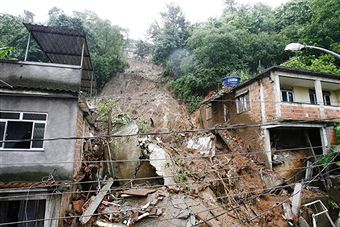January 3 – Rio de Janeiro has hired IBM and other major international firms to help bolster its emergency response operations in the build-up to the 2014 FIFA World Cup and the 2016 Olympics and Paralympics.
The public information management centre in Cidade Nova, which will consolidate information from multiple municipal Government departments and agencies with the hope of improving response times to emergencies, officially opened last Friday (December 31).
It passed its first major test on New Year’s Eve when it was used to coordinate city responses at a huge annual celebration of the New Year on Copacabana Beach, where International Olympic Committee (IOC) President Jacques Rogge was among two million spectators who saw Rio 2016 launch its new Olympic emblem.
The system was originally designed to forecast flash floods and related emergencies such as landslides, but with two major global events around the corner, Rio officials want to apply it to events, sporting matches and traffic patterns too.
IBM has set-up similar systems in New York and Gauteng in South Africa, but the Rio project will take it one step further as a full end-to-end crisis management system: prediction, mitigation, immediate response and feedback from that response for future incidents.
Cisco and Samsung, a TOP Olympic sponsor, are also involved in the project.
Last April the heaviest rains in decades lashed the state of Rio de Janeiro, causing more than 200 mudslides that left 256 people dead and thousands homeless.

Many of the mudslides that buried homes, schools and businesses occurred in the favelas built on unstable, hilly land surrounding the city.
At the time Rio de Janeiro Mayor Eduardo Paes called Rio’s preparedness for such a catastrophe “less than zero”.
The new Rio Operations Centre will bring together representatives from dozens of city agencies from transit to utilities to emergency responders in a command centre dominated by a huge video screen where critical shared information will be projected.
As part of its SmarterCities initiative, IBM had a multimillion-dollar contract to provide infrastructure, software and equipment to integrate systems, allowing diverse agencies to share emergency information and plan coordinated responses.
“The centre will handle anything that has to do with city operations,” said Guru Banaver, the chief technology officer for SmarterCities.
“All the hard decisions that will be made about the city will be made in this centre.”
The Mayor will have an office there as well as the city’s chief operations officer.
IBM has worked on Smart City programmes – among them a crime information centre for New York City and a transportation-related centre for London — but the Rio project “is probably the most comprehensive we’ve done,” said Banaver.
IBM has also developed a high-resolution weather forecasting system that can predict heavy rains as much as 48 hours in advance as well as hydrological models that will predict how water will flow over the city’s terrain.
If heavy rain seems likely, for example, city workers will be able to pinpoint the areas most likely to be affected, to deploy emergency personnel and supplies in advance and to even check on the nearest hospitals and how many beds they have available.
“The Mayor views this centre as the first step in delivering on his promise of improving infrastructure for the Olympics,” said Banaver.

